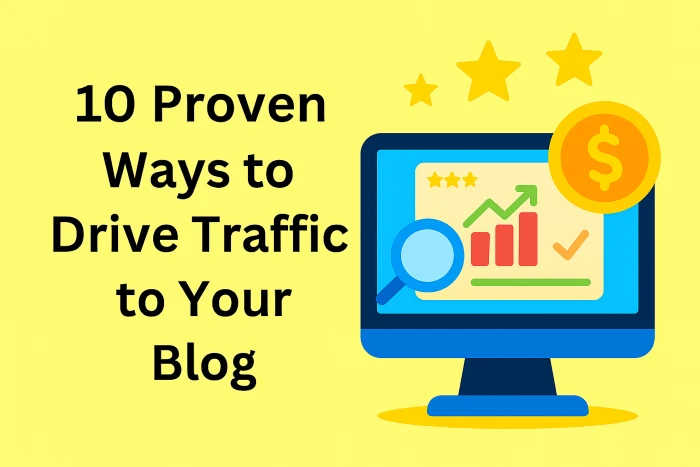1. What Is CRM Software and Why Does It Matter for Small Businesses?
Customer Relationship Management (CRM) software is a tool designed to help businesses manage their interactions with current and potential customers. For small businesses, CRM software provides an organized system to track sales leads, customer communications, follow-ups, and support history. It centralizes customer data, making it easier to access insights, personalize interactions, and streamline workflows. Instead of juggling spreadsheets and scattered notes, small business owners can use CRM to gain a clear view of their customer pipeline and business performance in one place.
The best CRM software for small business isn’t just about contact storage it’s about driving meaningful customer engagement that leads to higher conversions and loyalty. With limited resources and smaller teams, small businesses need efficient systems that reduce manual tasks and increase productivity. CRM software helps prioritize hot leads, set reminders, and automate repetitive actions, allowing sales teams to focus on what really matters: building relationships and closing deals. In today’s competitive landscape, investing in a quality CRM is no longer optional it’s essential for any small business that wants to grow sustainably.
2. How the Best CRM Software for Small Business Streamlines Sales Processes
Small businesses often deal with limited time, staff, and budget making sales efficiency critical. The best CRM software for small business helps streamline every stage of the sales process, from lead capture to deal closure. It automates data entry, assigns tasks to team members, and provides a clear visual pipeline of where each prospect stands. With CRM, there’s no need to chase down emails or manually track calls it’s all recorded automatically, ensuring nothing falls through the cracks.
Moreover, good CRM tools offer sales automation features like email sequences, follow-up reminders, and lead scoring. This means small business owners and sales reps can focus on high-intent leads without wasting time on cold prospects. The best CRM software for small business also integrates with tools like email marketing platforms, payment processors, and analytics dashboards, creating a seamless system that empowers smarter selling. When sales processes are optimized through CRM, small businesses not only close more deals they do so faster and with less effort.
3. The Hidden Link Between Customer Relationships and Increased Revenue
Most small businesses focus heavily on generating new leads, but nurturing existing relationships is just as critical — and often more profitable. A CRM system strengthens these relationships by ensuring consistent and personalized communication. By tracking customer preferences, purchase history, and interactions, the best CRM software for small business enables teams to anticipate customer needs, deliver timely offers, and increase repeat sales.
Happy customers are more likely to return and refer others, making them powerful growth drivers. The best CRM software for small business empowers teams to build these long-term relationships by ensuring no customer feels ignored or forgotten. Follow-up reminders, birthday messages, loyalty campaigns all of this becomes easier to manage within a CRM. Over time, these personal touches increase lifetime value and drive revenue growth without increasing acquisition costs. In short, CRM isn’t just about managing contacts it’s about turning relationships into revenue.
4. Top Features to Look for in the Best CRM Software for Small Business
When selecting the best CRM software for small business, it’s essential to focus on features that actually drive results. A user-friendly interface is critical you don’t want to spend hours training your team or managing complex systems. Key features should include contact and lead management, pipeline tracking, sales automation, task reminders, and integration capabilities with tools like email marketing software, accounting platforms, and customer support apps.
Additionally, mobile access is increasingly important for on-the-go sales teams. Look for CRMs that offer native mobile apps so your team can access data and update records anytime, anywhere. Analytics and reporting are also crucial the best CRM software for small business should help you measure sales performance, identify trends, and adjust strategies accordingly. Bonus features like customizable dashboards, AI recommendations, and workflow automation can give small businesses a serious competitive edge. Choosing a CRM with the right features means less busywork and more time growing your business.
5. How CRM Automation Helps Small Businesses Close Deals Faster
Time is money especially for small businesses. CRM automation helps by eliminating repetitive manual tasks that slow down the sales cycle. Whether it’s sending follow-up emails, assigning leads to reps, or tracking deal progress, automation ensures that no opportunity is missed. The best CRM software for small business uses intelligent workflows that trigger actions based on customer behavior. For example, if a prospect opens an email twice, the system can automatically schedule a follow-up call or alert the sales rep.
This level of automation not only saves time but also increases conversion rates. By responding quickly and appropriately to customer signals, small businesses can guide prospects through the sales funnel more efficiently. The best CRM software for small business also allows automation of internal processes like sending invoices after a deal is won or updating the sales pipeline automatically. These streamlined processes reduce friction, improve response time, and ultimately help close deals faster with less effort.
6. Real-Life Success Stories: Small Businesses That 10x’d Sales with CRM
Theory is great, but nothing is more convincing than real-world success. Many small businesses have experienced exponential growth simply by implementing the right CRM system. Take, for instance, a boutique marketing agency that saw a 300% increase in client retention after using CRM to personalize follow-ups and manage campaigns more effectively. Or a local e-commerce store that tripled its sales in one year by using automated emails and targeted customer segments all powered by CRM insights.
These success stories are not outliers. In fact, the best CRM software for small business is designed to make such outcomes replicable. When small business owners can track customer behavior, predict needs, and stay organized, they create better experiences that lead to loyalty and higher revenue. From solo entrepreneurs to 10-person teams, businesses that fully utilize CRM tools often see major improvements in efficiency and sales performance. These stories serve as proof that a smart CRM investment can truly transform small business outcomes.
7. Best CRM Software for Small Business in 2025: Our Top Picks
With so many CRM options on the market, it can be overwhelming to choose the right one especially for small businesses with limited resources. That’s why we’ve narrowed down a few of the best CRM software for small business in 2025 based on user-friendliness, affordability, and feature depth. Zoho CRM is a favorite among startups due to its scalability and rich automation tools. HubSpot CRM offers a powerful free version with easy upgrades for growing teams. Pipedrive is ideal for sales-focused businesses with its visual pipeline and intuitive drag-and-drop interface.
Other honorable mentions include Freshsales, which provides AI-based lead scoring, and Insightly, perfect for small businesses with both sales and project management needs. Each of these tools represents what the best CRM software for small business should offer: ease of use, automation capabilities, excellent support, and integration with your existing tools. Depending on your industry and budget, one of these CRMs could become a critical part of your growth strategy in 2025 and beyond. Always start with a free trial or demo to ensure the tool aligns with your business’s specific needs.
8. Free vs Paid CRM Tools: Which One Actually Grows Your Business?
Many small businesses are drawn to free CRM tools, and for good reason they offer a risk-free way to organize contacts and start managing customer relationships. Tools like HubSpot CRM and Zoho CRM Free Edition provide strong foundations, including lead tracking, email logging, and reporting. For businesses just starting out, these features can make a big impact. However, the question remains: Can free CRM software really support long-term growth?
While free tools can be helpful, they often come with limitations such as user caps, limited automation, and restricted integrations. As your business scales, these limits can hinder progress. The best CRM software for small business tends to offer affordable paid plans that unlock essential growth features like workflow automation, advanced reporting, custom dashboards, and premium support. In many cases, the small monthly investment in a paid CRM pays off by saving time and helping close more sales. If you’re serious about growth, it’s wise to start free, but plan to upgrade to a paid CRM as your needs evolve.
9. 5 Common CRM Mistakes Small Business Owners Must Avoid
Even the best CRM software for small business can fall short if it’s used incorrectly. One common mistake is failing to customize the CRM to match your sales process. Many small businesses simply use default settings, which can result in irrelevant data, missed steps, or confusing workflows. Another big issue is not keeping the CRM updated outdated contact info or missing notes defeat the entire purpose of having a centralized system.
Another mistake is undertraining your team. If your staff doesn’t fully understand how to use the CRM, it can lead to inconsistent data entry and low adoption rates. Also, some businesses choose a CRM based solely on price rather than functionality, only to find it lacks critical features. Lastly, many small business owners ignore automation features, manually doing tasks that could be handled more efficiently. Avoiding these mistakes ensures you’ll get the most out of the best CRM software for small business turning it from a glorified address book into a true growth engine.
10. How to Choose the Best CRM Software for Your Unique Small Business Needs
Choosing the best CRM software for small business is not a one-size-fits-all decision. Every business has its own workflows, customer journeys, and growth goals. Start by defining your specific needs do you need simple contact management, or a full-featured CRM with automation, email marketing, and reporting? Do you work mostly with leads, or recurring customers? Understanding your customer lifecycle will help guide your choice.
Next, consider factors like budget, ease of use, and integrations. The best CRM software for small business should work with your existing tools, like your email provider, website forms, and accounting software. Look for flexible pricing plans that let you scale gradually. Always test the CRM with a free trial to assess how intuitive it is for your team. Finally, check user reviews and case studies from businesses similar to yours. The right CRM should simplify your operations, improve customer relationships, and ultimately drive higher revenue with less effort.
11. Integrations That Matter: Connecting CRM with Email, Marketing & More
One of the biggest strengths of the best CRM software for small business is its ability to integrate with other tools you already use. Email marketing platforms like Mailchimp, ActiveCampaign, or Sendinblue can be connected to your CRM to automate campaigns and segment audiences based on behavior. Imagine sending a discount email to customers who haven’t purchased in 30 days without lifting a finger. That’s the power of integration.
In addition to email, CRMs can connect with e-commerce platforms (like Shopify or WooCommerce), accounting tools (like QuickBooks), and customer service platforms (like Zendesk). These integrations allow for a 360-degree view of each customer, combining sales, support, billing, and behavior in one place. The best CRM software for small business enables seamless communication between departments and eliminates data silos. When all your tools work together, your team works smarter, and your customers get a more personalized experience. Don’t underestimate the ROI of a well-integrated CRM.
12. Final Verdict: Is Investing in the Best CRM Software Worth It for Small Business Growth?
For many small business owners, CRM software can feel like a “nice-to-have” rather than a necessity especially in the early stages. But the truth is, the best CRM software for small business is one of the most impactful investments you can make for long-term success. It boosts productivity, improves customer communication, reduces human error, and offers deep insights into your sales and marketing efforts.
If your business deals with more than a handful of leads, prospects, or customers, a CRM becomes invaluable. It’s not just about tracking sales it’s about building relationships at scale. The ability to follow up at the right time, nurture leads automatically, and stay organized gives small businesses a competitive edge. In 2025, with customer expectations higher than ever, CRM isn’t just a tool it’s a growth strategy. If chosen and implemented correctly, the best CRM software for small business pays for itself many times over.
1.What is CRM software and how does it help small businesses?
2. Is free CRM software good enough for a small business?
3.How do I know which CRM is best for my business?
Sales process complexity
Team size
Integration needs
Budget
Start with a list of must-have features (e.g., lead scoring, mobile access, automation) and test a few platforms using free trials. Pay attention to usability, customer support, and how well it fits into your daily operations.




